Mozambique: Insurgents attack, kill four near Mocímboa da Praia - Lusa
Mozambique: Cabo Delgado citizens arming themselves against islamists – AIM report
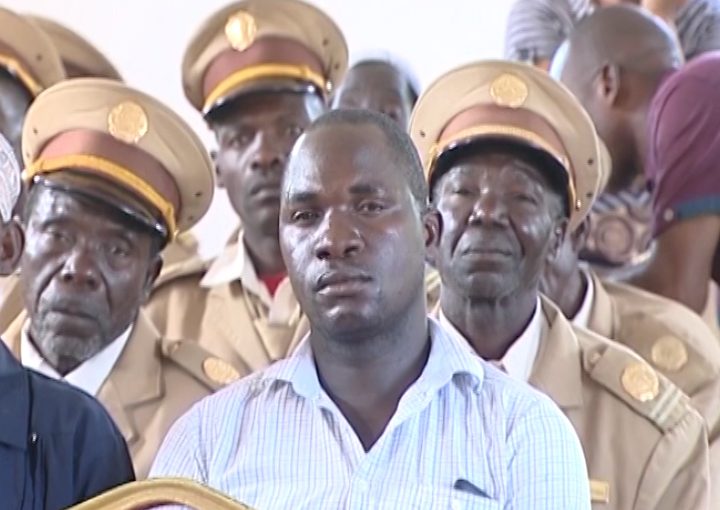
Photo: TVM
Citizens in Macomia district, in the northern Mozambican province of Cabo Delgado, have begun to arm themselves with traditional weapons, such as machetes and bows and arrows, for protection against raids by Islamic terrorists, known locally as “Al Shabaab”, reports Friday’s issue of the independent weekly “Savana”.
“Savana” sent a reporter to Macomia who reported on a tense situation, but one in which at least part of the public wants to fight back. In addition to traditional weapons, they have also asked the authorities for firearms, so far without success,
Macomia, a district which is half way between the provincial capital, Pemba, and the massive hydrocarbon discoveries off the coast of Palma district, was the scene of a particularly vicious attack on the night of 4 June, when a terrorist group struck the coastal village of Naunde, killing seven people, and burning down 164 houses.
Villagers in Naunde tried to defend themselves, but were defeated, because the jihadists had guns and they did not. The knives and arrows of the defenders were no match for firearms.
“We were warned that the attackers were coming to our village”, the village secretary, Mauricio Miranda, told the paper. “We were on the lookout, but they tricked us by coming at the village from the seaward side. When they entered the village, they were shouting “thief ! thief!”, in Kimwani (the local language). People ran to see who the thief was, and they were attacked with machetes”.
When the villagers resisted the attack, the islamists opened fire, and hit a man named Alimo in the foot. When he fell, the rest of the villagers dispersed.
A village elder named Narciso Cassimo saw the attackers decapitate Alimo and put his head on a stake. He also watched helplessly while the raiders burnt down his house, and his corral, where all 27 of his goats were killed.
Two days later came an attack on the village of Namaluco, in which seven people were killed and 210 houses destroyed. Namaluco is in Quissanga district, but it is only 20 kilometres from the Macomia district capital, Macomia town.
On 8 June, Interior Minister Basilio Monteiro visited Naunde and other coastal localities, setting up positions of the defence and security forces in several localities. He urged the population to put their trust in the military and not to flee from their villages.
But four days later the jihadists struck in Macomia district again, this time in the Nathuko 1 village, 50 kilometres from Naunde, where they beheaded one person.
In Macomia town, informal traders in the streets do a roaring business by day, but at night the streets are deserted. “Savana” notes that the local government has decreed a curfew after 21.00. As from 20.00, heavily armed troops take up key positions in the town.
There is an electricity sub-station at the southern entrance to the town. It is now guarded by members of the armed forces (FADM), as are the petrol station, bank, and a small hotel.
The military presence is not enough to soothe the fears of the residents. “We don’t know what to do. The area is agitated. At night nobody can sleep”, according to Hassane Rabuna, first secretary of the ruling Frelimo Party in the Nanga-A neighbourhood of Macomia town.
Rabuna said he had met with the local population, urging them to remain vigilant. “But we are defenceless”, he added. “We have no weapons. We need weapons to defend ourselves”.
He also urged parents whose sons have joined “Al Shabaab” to denounce them to the authorities. He was certain that some of the Macomia attackers are from the town. “Some of the attackers are local, they were sons of this neighbourhood”, he said.
He recalled that at the early stages of jihadist agitation “there were these people who said they were muslims. But we told the district government that, as far as we could see, they weren’t religious. They have some other objective”.
The armed attacks began on 5 October last year in Mocimboa da Praia district. “The parents of these people are still in the town”, said Rabuna.
Everyone who spoke with “Savana” in Macomia said the attackers had left the town and gone into the bush, attracted by promises of money, but they did not say who gave these promises. In the local market, people showed “Savana” abandoned stalls, and said their owners are young people who have gone into the bush.
“One of them sold his stall for 25,000 meticais (about 415 US dollars), and disappeared. Where do you think he went?”, one man selling cell phone vouchers asked the reporter.
“We talk to the public about this”, said Rabuna. “Those who know their sons are in the bush, we want them to come forward and say ‘my son is in the bush’, and say what to do with this son when he is caught”.
Rubana was clear that captured jihadists could not expect much mercy. “When they come, they always murder people”, he said. “If we find them, we have no alternative, we have to do the same as they do”.
On the road north from Macomia “Savana” found many people armed with bows and arrows. “It’s to defend myself against Al Shabaab”, one old man said. “If I hit him with this arrow, he’ll die. It’s got snake poison”.
“Savana” found that, while many people had fled from the villages attacked, others had decided to stay. Narciso Cassimo said he would rebuild his house in Naunde.
“I’m not leaving here. Where would I go?”, he asked. “I’ve lived here since the time of the colonial war. I’m staying”.
Cassimo was speaking to “Savana” a week after the jihadist attack on Naunde. By then the only aid the villagers had received was from soldiers who were helping them rebuild their homes. “We need food, blankets and more stakes for rebuilding”, said Mauricio Miranda.
But later that same day, the Macomia district administrator, Joaquina Nordine, visited the village and bought with her a truckload of food, clothing, stakes and some domestic utensils.
“This is solidarity from the people of Macomia, who put together what they had to help their brothers of Naunde”, said Nordine. “The Cabo Delgado government has also bought food for people who lost everything here, and for those who fled to Ibo island”.
“Savana” notes reports of arbitrary arrests of people believed to have assisted the jihadists. “We think lots of innocents have been killed”, said a young vendor in the Macomia market. “The soldiers are angered by the attacks, and all those suspected of collaborating with the attackers, by giving them food or information, are detained and they often disappear”.
There are discrepancies between the number of jihadists arrested and the number facing trial. Shortly after the first attacks, in October, the police said 300 people had been arrested. But in April Attorney-General Beatriz Buchili, giving her annual report to the country’s parliament, the Assembly of the Republic, said there were only 135 suspects.
A traffic policeman at a checkpoint on the Pemba-Macomia road claimed “many of the attackers and those suspected of collaborating with them have been killed and their bodies thrown into mass graves”.
One Macomia resident told “Savana” these extra-judicial killings were because “the Public Prosecutor’s Office sets these people free, and afterwards they go back to the bush”.
Women are said to assist the jihadists by spying on local communities, and providing food for fighters in the bush. “There were women who were detained and taken to Pemba because they were giving the fighters food. But the Public Prosecutor’s Office released them”, said one elder in Macomia. “They’ve gone back to the bush to go on helping their husbands”.



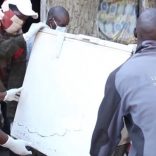
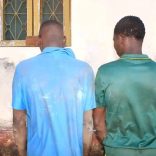
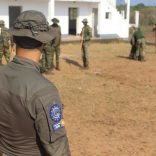

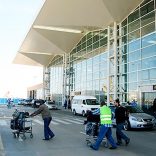



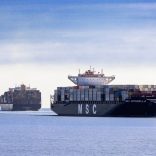

Leave a Reply
Be the First to Comment!
You must be logged in to post a comment.
You must be logged in to post a comment.